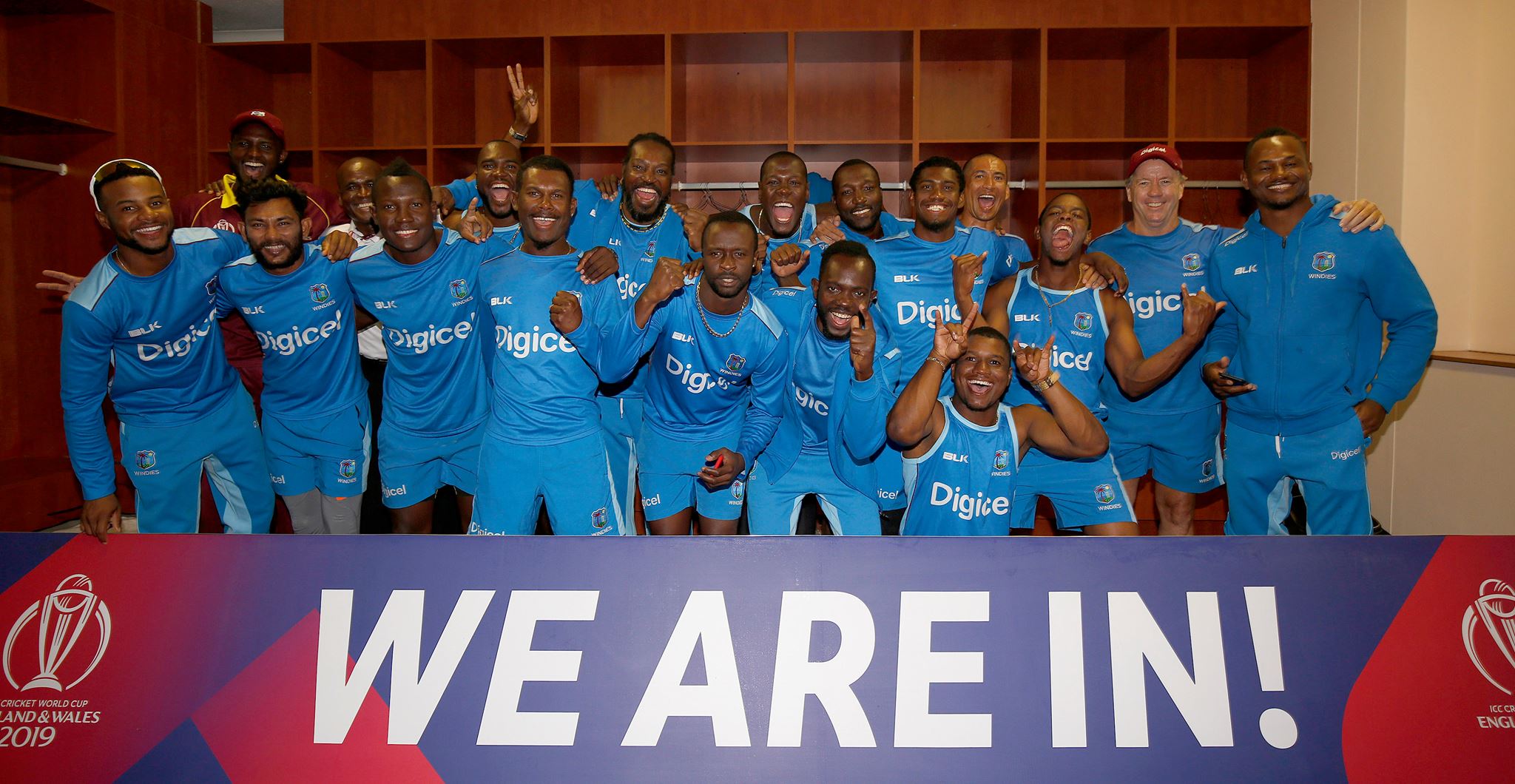The West Indies came to Zimbabwe with a single goal: to qualify for the World Cup in England in 2019. But along the way, they knew there was something else, perhaps even deeper, at stake: the profound cricketing reputation of one of the game’s proudest regions.
Led by Jason Holder, a 26-year-old seam-bowling all-rounder manfully overseeing one of the toughest jobs in the game, the new breed arrived in Zimbabwe under unimaginable pressure.
Those stars above the crests of their shirts, representing two world titles, glistened every time they took the field. Meanwhile the greats from yesteryear remained at large, prowling the boundary rope, the scale of their achievements sometimes weighing heavy on the youthful current crop.
Thankfully for Holder, he was able to call upon three rejuvenated senior players. Kemar Roach was back, fit and firing, enthused again to lead the attack. In the middle order, Marlon Samuels brought a steady pulse to a greenhorn line-up; and up top: the great Chris Gayle, in the maroon shirt, back where it all began.
For Gayle, who made a brutal, statement century in their first match, there was evidently a sense of unfinished business. The Windies had missed out on last year’s ICC Champions Trophy and the failure stung them hard.
To not appear in two world jamborees within two years would not merely amount to a humiliation; it would negatively impact on the game’s popularity in a region that has done so much to fashion the version we see today.
So the stakes, as Samuels himself admitted after a heart-stopping last-over victory over Zimbabwe, could really not be higher. This tournament, no doubt, was about much more than mere qualification for another one.
For Scotland, meanwhile, their adventure had taken them twisting and turning to this: the Harare Sports Club and a date with the fates.
A win over the Windies would see them in next year’s showpiece, and the knock-on effect on their country’s cricket, building towards a World Cup in the British Isles, would be immense.
Cricket in Scotland is already flourishing, and the national team’s recent results reflect that. But victory here would propel them forward exponentially.
And what a start by the tartan boys. To the very first ball of the match, Gayle was upended by a jaffa from Safyaan Sharif. With the swift departure of Shai Hope, the Windies were suddenly 2-2, leaving Evin Lewis and Samuels to circumspectly repair the damage done.
It was a drawn-out passage: tense, taut cricket, with both teams scoping one another out. The prize on show stymied natural expressiveness, although Lewis at least did look to kick on once past his fifty. As soon as he did so, however, he walked across his stumps to give Brad Wheal his first wicket, and let Scotland back in the match.
The Scots thereafter were inspired. The last eight wickets fell for just 75 runs, as Kyle Coetzer’s men, propelled by Sharif and Wheal, who each ended with three wickets, harried the Windies into submission. Preying on the anxieties lying near the surface of the men in maroon, Scotland were able to set themselves 199 to win.

What happened next will be known as the run-chase that never was. It is unimaginably harsh to think that Scotland will never know what they could have achieved given a fair wind and clear skies.
At 125-5 in the 36th over, with a partnership building and just five runs behind the required rate on the Duckworth/Lewis/Stern rain calculation, the heavens turned too violent and the players headed for the sanctuary of the pavilion.
The umpires had no choice. The mood seemed to be one of cautious optimism that the game would resume and a slightly reduced target would be reset and a heart-stopping finale guaranteed. But the rain kept falling. The spitting became a torrent, and the torrent a deluge. Huge puddles formed on the outfield. The game, and our promised finale, would be taken by the weather.
“There’s a bit of emotion upstairs,” said Coetzer afterwards, with admirable understatement. “After all the hard work that’s been put in, I’m extremely proud of how they’ve gone in this tournament. We’ve shown everyone what we’re capable of. A couple of moments in the last two games that have really hurt us, a couple of decisions that unfortunately haven’t gone our way.”
Coetzer may well have been referring to a marginal lbw decision against Richie Berrington, who was going nicely on 33 when he was adjudged to have been caught in front of leg stump by a quicker ball from Ashley Nurse.
But the pain was not about marginal calls; the real agony must lie in being robbed of the chance to prove something to themselves. “My team has been exceptional,” Coetzer added, a lump clearly forming in his throat.
Holder’s demeanour, by contrast, was primarily one of relief. “We’ve been through a lot the last couple of years,” he said. “It hasn’t been easy. We came into this competition as the No.1 ranked team and there was pressure on every single game. I’m just really, really pleased to get over the line.”
They now go through the final on Sunday. They await their opponents. No doubt they will be desperate to win the trophy; and no doubt they will approach the task sporting wide, liberated smiles for the first time in weeks. (ICC)








